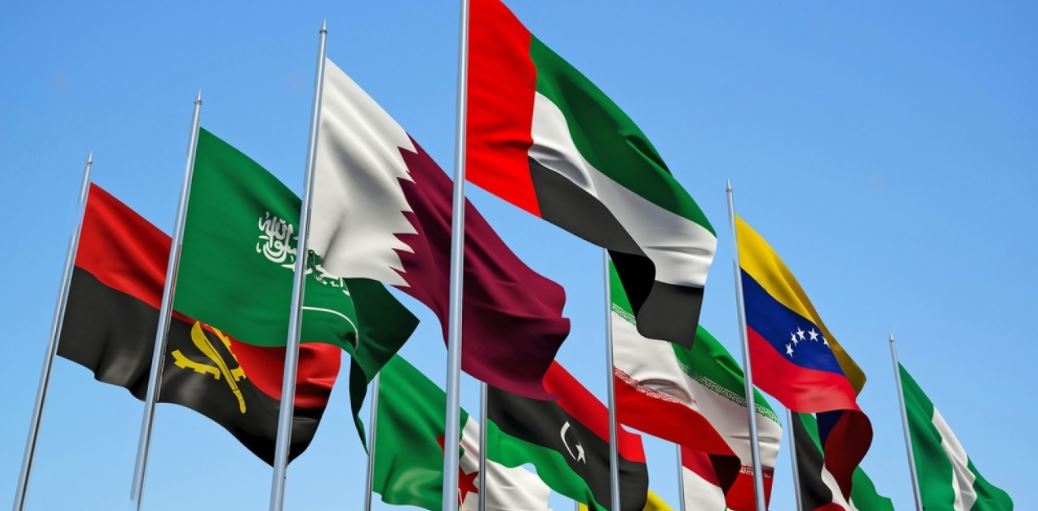A Defining Quarter for Regional Innovation
The third quarter of 2025 will be remembered as a landmark moment in the evolution of the Middle East and North Africa’s innovation economy. Startup investments across the region reached an unprecedented US$4.5 billion, representing a staggering 523% increase compared to the previous quarter. This dramatic surge signals that the MENA region is no longer a peripheral player in the global venture capital landscape it is now an emerging powerhouse commanding serious investor attention. The rapid rise in capital inflows underscores the region’s strategic shift from a consumption-driven economy to one anchored in digital transformation, entrepreneurship, and technology-driven competitiveness.
This wave of investment is the result of years of structural and regulatory groundwork laid by regional governments to nurture startup ecosystems capable of scaling globally. The growing presence of venture capital funds, sovereign wealth participation, and innovation-driven economic reforms have collectively created a fertile environment for business creation. As nations across the Gulf and North Africa continue to diversify away from hydrocarbons, the private sector especially startups has become a critical driver of employment, export growth, and technological advancement.
The Q3 investment boom also reveals a strong rebound from earlier market uncertainty that dominated the first half of 2025. Investor sentiment has clearly recovered, supported by macroeconomic stability, declining inflation, and improving consumer demand in key regional markets. This renewed optimism reflects a broader belief that the next decade will belong to MENA as a technology frontier, with cities like Dubai, Riyadh, Cairo, and Amman leading innovation across fintech, logistics, healthtech, and green technologies.
Fintech and AI Drive the Investment Wave
Among all sectors, financial technology (fintech) and artificial intelligence (AI) emerged as the dual engines powering MENA’s record-breaking investment performance. Fintech alone accounted for a significant portion of the US$4.5 billion raised in Q3, as startups providing digital payment systems, remittance solutions, and blockchain-based financial services attracted massive funding rounds. The region’s shift toward cashless economies, combined with strong consumer adoption of mobile banking and digital wallets, has created a fertile market for scalable fintech innovation. Saudi Arabia and the UAE, both equipped with progressive financial regulators, have accelerated this trend by issuing digital banking licenses and encouraging open finance frameworks.
In parallel, AI-driven startups have witnessed a historic surge in funding, reflecting the region’s growing ambition to lead in intelligent technologies. Startups specializing in predictive analytics, automation, data infrastructure, and applied AI for logistics, healthcare, and sustainability secured substantial investments. This reflects a profound transformation: MENA innovators are no longer simply replicating Western technologies but are creating context-specific AI models tailored to regional languages, consumer behavior, and infrastructure realities. Dubai’s newly announced AI Platform and Startup Acceleration Program have become central to this ecosystem, serving as a hub for experimentation and policy-driven innovation.
Together, fintech and AI have become symbols of MENA’s new digital identity an ecosystem where finance, data, and technology converge to address local challenges while delivering global impact. The combination of advanced financial technology and artificial intelligence is expected to redefine the future of business in the region, with far-reaching implications for employment, cross-border commerce, and public-sector digital transformation.
The Rise of Saudi Arabia and the UAE as Startup Powerhouses
At the core of this investment explosion lie two dominant players: Saudi Arabia and the United Arab Emirates (UAE). Together, they accounted for more than 70% of total funding activity in Q3 2025. This is no coincidence both nations have spent the past several years executing comprehensive national strategies to attract venture capital, empower entrepreneurs, and create innovation-led economies.
Saudi Arabia’s Vision 2030 agenda has been pivotal in this regard. Through its Public Investment Fund (PIF) and initiatives such as Saudi Venture Capital Company (SVC) and Monsha’at, the Kingdom has successfully created a structured pipeline for startups to grow from seed to scale-up. Several large funding rounds in logistics, edtech, and sustainability ventures originated in Riyadh this quarter, with the city now emerging as one of the most dynamic innovation hubs in the Arab world. Government-backed investment funds are complementing private VC participation, de-risking early-stage ventures, and accelerating the Kingdom’s transition into a high-tech economy.
Meanwhile, the UAE particularly Dubai continues to play the role of a regional nerve center for innovation, connectivity, and investment. The emirate’s pro-business regulatory environment, global investor networks, and advanced digital infrastructure make it an ideal base for founders seeking global reach. Initiatives such as the Dubai Economic Agenda D33, the AI and Digital Economy Strategy, and free zones like DIFC Innovation Hub and Dubai Silicon Oasis have cemented its position as a preferred destination for global and regional startups. The city’s ability to seamlessly link investors from Asia, Europe, and Africa gives it an unmatched edge as a global connector for technology and entrepreneurship.
Regional Diversification: Egypt, Jordan, and Morocco on the Rise
While the Gulf nations dominate funding volumes, the second wave of MENA’s innovation surge is being powered by countries like Egypt, Jordan, and Morocco, which are rapidly positioning themselves as centers for affordable innovation and skilled talent. Egypt, in particular, stands out for its demographic advantage a young, tech-savvy population and a vibrant startup scene supported by a growing middle class. Cairo has become a nucleus for digital payments, logistics, and AI-based service models, with startups expanding regionally to the Gulf and Sub-Saharan Africa.
Jordan’s ecosystem, though smaller in scale, is characterized by exceptional human capital. The country’s emphasis on STEM education and digital upskilling has resulted in a steady flow of entrepreneurial talent capable of launching scalable ventures. The government’s support for early-stage funding, combined with regional partnerships, is creating a nurturing environment for growth in edtech, SaaS, and cybersecurity startups.
Morocco’s inclusion in the MENA startup map is driven by its strategic focus on green energy, agri-tech, and sustainable industries. Casablanca and Rabat are emerging as innovation centers connected to both African and European markets. With increasing attention from international venture funds and development agencies, Morocco’s startup ecosystem is expected to expand significantly, contributing to regional diversity and resilience.
Collectively, these three nations are playing an essential role in balancing the MENA innovation economy ensuring that growth is not limited to capital-rich Gulf states but extends across North Africa and the Levant, deepening regional integration and collaboration.
Global Capital Flows and Investor Outlook
The record-breaking US$4.5 billion quarter has firmly placed the MENA region on the global investment radar. Venture capital firms from the United States, Europe, and Asia are now establishing dedicated funds targeting the region, driven by the promise of untapped potential and rapid scalability. Sovereign wealth funds from the Gulf, particularly the PIF, Mubadala, and ADQ, are co-investing with global institutions, further strengthening investor confidence.
Asian capital has also played a pivotal role in this momentum. Strategic investors from China, Singapore, and South Korea are increasingly channeling funds into MENA’s digital economy particularly in logistics, e-commerce, and AI infrastructure aligning with broader trade and innovation corridors such as China’s Belt and Road Initiative. This diversification of funding sources ensures long-term stability and reduces dependency on Western capital cycles.
Looking forward, investor sentiment remains optimistic. Analysts project that MENA startup investments could exceed $10 billion annually by 2026, provided that governments maintain their reform momentum and continue improving intellectual property frameworks, data privacy laws, and startup financing mechanisms. The region’s innovation future will hinge on striking a delicate balance between regulatory oversight, startup agility, and investor protection a formula that could define the next chapter of global entrepreneurship.
A Transformative Moment for MENA’s Innovation Future
The extraordinary investment surge in Q3 2025 represents far more than a numerical achievement it marks a paradigm shift in the region’s economic identity. MENA’s startup landscape has evolved from fragmented local ecosystems into a cohesive, innovation-driven regional network. Government-backed initiatives, venture funding, and entrepreneurial resilience are converging to create one of the fastest-growing digital economies in the world.
This transformation also holds profound social and economic implications. As startups expand, they are generating thousands of high-value jobs, fostering technology transfer, and creating new market opportunities across sectors. The focus on fintech, AI, sustainability, and digital logistics reflects a region preparing for a post-oil future one where innovation, rather than natural resources, defines prosperity.
If the current trajectory continues, the MENA region is poised to become a global hub for startup innovation by the end of the decade, bridging the world’s major emerging markets across Africa, Asia, and Europe. The record-breaking $4.5 billion investment milestone is not the peak it is the beginning of a new era in which MENA’s entrepreneurs, investors, and policymakers collectively shape the digital future of the region and beyond.
Related Blogs: https://arabworldleaders.com/







